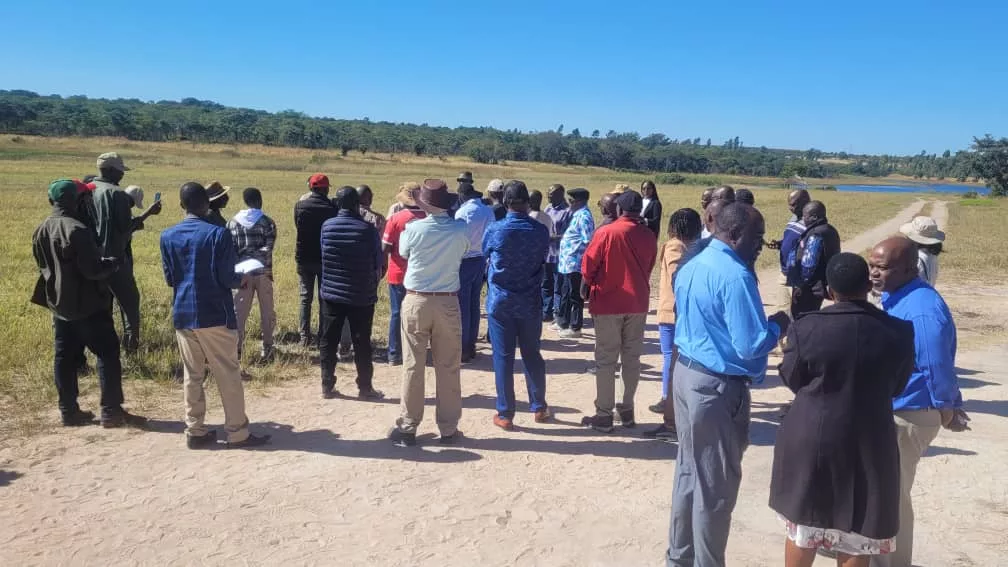|
Getting your Trinity Audio player ready...
|
Writes Admore Mbonda
Kariba – Residents of Kariba are living in fear as baboons increasingly invade their neighborhoods, with some even making their way into the Kariba District Hospital, where they are stealing food from the wards.
Residents report that baboons have become a common sight, particularly in the mornings, as they roam freely through residential areas. This has raised concerns among parents, particularly regarding the safety of their children while they are out running errands.
“It’s very risky now to send our kids to Nyamhunga shopping center,” lamented one resident. “We are constantly on edge, worried about these aggressive animals.”
The situation at the Kariba District Hospital is equally alarming. Patients and health staff have found themselves in daily confrontations with the baboons, who not only steal food but also damage hospital property. Staff members report that the animals often jump from roof to roof, causing asbestos to cave in or fall off, leading to further damage. “Sometimes they even enter patients’ rooms while they are asleep,” said a hospital staff member. “We urgently appeal to the relevant authorities to help us manage this crisis.”
Simigo Chigwagwa, the hospital administrator, confirmed the troubling reports. “This is not the first time we’ve had issues with baboons. We have engaged the relevant authorities, including ZimParks and the municipality. Unfortunately, despite trying various methods, most solutions have proven ineffective, leaving us vulnerable,” Chigwagwa explained.
ZimParks spokesperson Mr. Tinashe Farawo acknowledged that the growing population of baboons in the region is a significant factor in the ongoing problem. “The issue of baboons is not unique to Kariba; similar challenges are being faced in Binga, Hwange, and Victoria Falls,” he stated. “Poor waste management systems in local authorities attract these primates, and as their populations grow, they stray from protected areas into communities, leading to conflicts that threaten livelihoods.”
Mr. Farawo emphasized the need for effective management strategies. “We have a surplus of baboons that our parks can no longer sustain. When they search for food, human-wildlife conflict is inevitable, and we have received numerous reports of such incidents.”
As the situation continues to escalate, both residents and health officials hope for a swift response from authorities to address the growing threat posed by these baboons.






